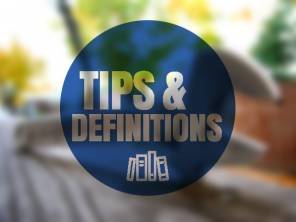The short answer? No.
In fact, if your drinking water has a considerable amount of limescale, it’s considered “hard water” and hard water is actually healthy since it contains a high amount of minerals that we need in our daily diet.
But while it isn’t “harmful” to drink, tap water with a high amount of limestone and other minerals can be annoying because it:
- Doesn’t taste great
- Causes scale buildup in pipes and water appliances
- Makes household chores harder
We’ll explain exactly how hard water causes all those problems. But first, let’s take a closer look at what limescale is and how it can get into some drinking water in the first place.
What is “limescale” and how does it get into my water?
Limescale is that white, chalky residue left behind by dissolved minerals (mostly calcium and magnesium) in your water. The higher the concentration of minerals in your water, the “harder” your water.
So, if you have hard water, you’ve probably seen this white residue in your bathtub, sink or even on your glass dishes.

That blueish, white layer is hard water residue (“limescale”) building on the inside of a sink faucet.
So how does calcium and magnesium get into your water in the first place? Well, as rainwater travels, it picks up sediment and minerals from the ground. So, if your location has mineral-rich terrain (for example, Arizona’s terrain is primarily made from limestone), you likely have “hard water”.
And according to the World Health Organization (WHO), hard water has “no known adverse health effects” so it’s completely safe to drink. But hard water does have a bad reputation because it can cause some annoying problems.
Let’s take a look at some of those “hard water problems”.
Hard water problem #1: The taste
To be fair, some people actually prefer the taste of hard water. However, if you have very hard tap water, your water might end up tasting bitter or salty due to the high amount of minerals that are dissolved in the water.
At the end of the day, it’s just a matter of preference but there is a noticeable difference between how hard water and soft water tastes.
Related: Why Does Tap Water in Arizona Taste so Bad?
Hard water problem #2: Scale buildup in pipes/water appliances
Over time, the minerals in your hard water will cling to the inside of your pipes and water appliances. As the minerals accumulate, it creates a thick layer of limescale that coats the inside of your appliances.
Problems caused by scale buildup:
- Reduced water pressure
- Clogged water pipes
- Corroded pipes
- Damaged water appliances (especially water heaters)
- Higher water heating bills
Hard water problem #3: Household chores are harder
If you have hard water, you’ll notice difficulty with simple household chores, such as:
- Laundry
- Dishwashing
Why? Well, it all comes down to the residue left behind by hard water. For example, mineral residue mixed with laundry detergent creates a soapy “curd” that leaves clothes stiff, discolored and damaged.
Washing dishes can also be a pain when you have hard water. Hard water leaves behind a white, chalky film on glass dishes that can be difficult to get rid of. In fact, an independent study found that homeowners with hard water typically spend 50% more on dishwasher and laundry detergent just to counteract hard water residue.
To learn more check out our blog, Why Arizona’s Hard Water Secretly Makes Your Life Harder (And What You Can Do About It).
The solution to hard water problems? A whole-home water conditioner
A whole-home water conditioner prevents both calcium and magnesium particles in your water from clinging to pipes, water appliances, clothes and dishes.
This process protects your water appliances and pipes and saves you money on water heating bills.
To learn more about how this product can get rid of hard water problems, contact us today.

